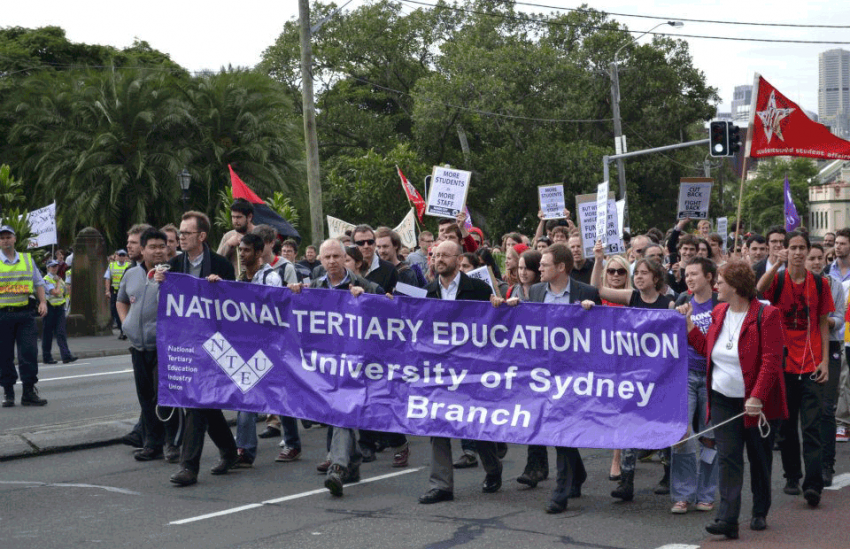Campus politics is just as nasty as real politics.
Bakri Mahmoud reports on the in-fighting and power struggles
Students at the University of Sydney were poised to vote for a new Student Representative Council one evening in recent years when suddenly the lights went out.
The power cut, caused by a switch being deliberately flicked, was just one incident during a chaotic night that saw rows between rival political factions, scuffles, and police called over an allegedly stolen mobile phone
In student politics, just as in mainstream politics, the stakes are high. Power, popularity, money – and, for students, a potential path into local, state or even national politics – await those who succeed. Consequently, it’s a toxic game.
As one female University of Sydney student says: “It’s the political game. And it’s … them having something to add to their CV … getting paid, having the power to make decisions about the university, about the student body. Also it’s a way for them to make friends – everybody knows them,”
Prominent Australian politicians, such as Prime Minister Malcolm Turnbull, former prime minister Tony Abbott (both University of Sydney) and deputy opposition leader Tanya Plibersek (University of Technology Sydney), cut their teeth in student politics.
And the combative ambience is nothing new. Mr Abbott was accused of intimidating a female student who beat him in an election by punching a wall close to her head. (He has denied it.)
While student politics can achieve meaningful change, many in that world say that, all too often, student politicians get caught up in internal power struggles and infighting.

One former University of Sydney student politician, Andy Mason, says: “I think the people who succeed tend to be people who are very ambitious …people who are good at playing the game.”
Mason believes that, because of internal disputes, students’ interests may get overlooked, with politicians not representing them effectively – a criticism often made of mainstream politics too. Improved communication between students and their politicians, and more accountability to the student community, are needed, says Mason.
Student activism can achieve positive outcomes, though. In 2012, warring parties laid down their arms to unite in protest against proposed lecturer job cuts at the University of Sydney.
Adam Adelpour, who belonged to a small political grouping called Solidarity, recounts how he and his comrades ran a campaign which was picked up by a more powerful Labor group. The two then worked with the National Tertiary Education Union to organise a demonstration attended by about 1,000 staff and students.
Ultimately, only 23 academics lost their jobs, out of the 100 initially proposed by the Vice-Chancellor, Michael Spence. In a letter to its members, the NTEU thanked protesters for their support.
Andy Mason says that kind of action illustrates how “some of the bickering that normally goes on is put on the back-burner and they look at more important things to focus on”. – words and podcast by @bakrimedia, editing by Kathy Marks


